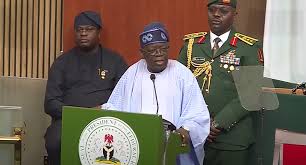In the spirit of Section 175 of the 1999 Constitution of the Federal Republic of Nigeria (as Amended), the president has the power to grant pardon to any person convicted of any offence.
It was therefore in exercise of this constitutional power that President Bola Ahmed Tinubu recently granted clemency to 175 persons convicted of various offences in Nigeria.
This action of the president, though in tandem with the constitution, triggered widespread criticism from the human rights community, in particular, and many other Nigerian citizens. The climax was the protest led by Sowore in Abuja, demanding the release of the leader of the Indigenous People of Biafra (IPOB), Mazi Nnamdi Kanu.
A point of convergence of the criticism revolves around the extension of the presidential pardon to persons convicted of heinous crimes such as murder, kidnapping, human trafficking, unlawful possession of firearms, and fraud, just to mention a few.
According to the critics, perpetrators of such serious crimes against society do not deserve the president exercising his prerogative of mercy in their favour, as the direct and natural consequence of doing so will embolden the pardoned convicts, while persons harbouring intentions to commit the same offence will also believe that, at the end of the day, they will go unscathed.
Swayed by this overwhelming public opinion and perception, the president, no doubt, bowed to superior wisdom and, in consultation with the Council of State, reviewed the decision by scaling down the list of the beneficiaries of the clemency from 175 to 34.
Particularly affected, in the review, are persons convicted of the monstrous offences like murder, kidnapping, human trafficking, arms deals and unlawful possession of firearms, as their earlier presidential pardons were either totally reversed or commuted to lesser punishments.
As expected, the decision doused the growing tension resulting from the initial pardon list. Consequently, we commend the president for not only giving eloquent expression to activating the constitutional power/instrument of prerogative of mercy to the deserving, but also deferring to public opinion/interest in so doing.
We equally commend all citizens, civil society and human rights organisations that rose to the occasion in the interest of justice by adding their voices to ensure that justice is not only done but manifestly seen to have been done.
Clearly, this is a manifestation of democracy in action, as any nation subscribing to modern democracy and its norms and values cannot help but always put the overriding interest of the majority of its citizens into consideration in arriving at a very critical decision such as this.
This resilience and flexibility, in our firm view, does not translate to weakness or lack of clear focus on the part of the president and the advisory body (council of state), rather it is a manifestation of an irrevocable determination to give prominence to public opinion, voice of reason, democratic tenets and in keeping with global best practices.
We therefore commend the president and the Council of State for the prompt response to popular view and the decision to reflect the same, resulting in the review of the list from 175 to 34 beneficiaries, as well as commuting other sentences to lesser ones.
We believe that with the review, a further and better justice has been done, and by always applying a fine-tooth comb in considering cases deserving presidential clemency, only persons who merit it will emerge as beneficiaries
For the beneficiaries, the clemency should serve as a second chance to change for the better and re-integrate into society. They should shun the temptation of returning to the ignoble path of criminality and notoriety.
The society should accept these citizens and also resist any form of discrimination or stigmatisation, so long as the beneficiaries of the presidential pardon demonstrate a clear and unwavering determination to abide by the terms of the pardon.


